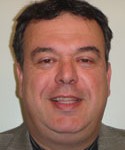By Micha Shalev
Dementia is the progressive deterioration in cognitive function — the ability to process thought (intelligence).
 Progressive means the symptoms will gradually get worse. The deterioration is more than might be expected from normal aging and is due to damage or disease. Damage could be due to a stroke, while an example of a disease might be Alzheimer’s.
Progressive means the symptoms will gradually get worse. The deterioration is more than might be expected from normal aging and is due to damage or disease. Damage could be due to a stroke, while an example of a disease might be Alzheimer’s.
Dementia a set of signs and symptoms
Dementia is a non-specific syndrome in which affected areas of brain function may be affected, such as memory, language, problem solving and attention. Dementia, unlike Alzheimer’s, is not a disease in itself. When dementia appears, the higher mental functions of the patient are involved initially. Eventually, in the later stages, the person may not know what day of the week, month or year it is. The individual may not know where he or she is, and might not be able to identify the people around him or her.
Dementia is significantly more common among elderly people. However, it can affect adults of any age.
Symptoms of dementia
•Memory loss — the patient may forget his or her way back home from the shopping mall. He or she may forget names and places, or may find it difficult to remember what happened earlier in the day.
•Moodiness — the patient may become more and more moody as parts of the brain that control emotion are damaged. Moods may also be affected by fear and anxiety — the patient is frightened about what is happening to him or her.
•Communicative difficulties — the affected person finds it harder to talk, read and/or write.
As the dementia progresses, the patient’s ability to carry out everyday tasks diminishes resulting in the inability to look after him or herself.
Diagnosis of dementia
Although there are some brief tests, a more reliable diagnosis needs to be carried out by a specialist, such as a geriatric internist, geriatric psychiatrist, neurologist, neuropsychologist or geropsychologist.
The following tests are commonly used:
•AMTS (Abbreviated Mental Test Score) — A score lower than six out of 10 suggests a need for further evaluation.
•MMSE (Mini Mental State Examination) — A score lower than 24 out of 30 suggests a need for further evaluation).
•3MS (Modified Mini-Mental State Examination).
•CASI (Cognitive Abilities Screening Instrument).
It is important that the patient’s score is interpreted in context with his or her socio-economic, educational and cultural background. The tester must also factor in the patient’s present physical and mental state — does the patient suffer from depression? Is he or she in great pain?
How common is dementia? According to a study published in The Lancet, approximately 24.3 million people had dementia worldwide in 2005, with 4.6 million new cases every year. The number of people with dementia will double every two decades and reach 81.1 million by 2040. The rate of increase is expected to be faster in developing countries, which have rapidly-growing life expectancies. In Massachusetts alone, according to the Alzheimer’s Association, there are 120,000 cases as of 2010.
Micha Shalev, MHA, is the owner of Dodge Park Rest Home and the Adult Day Club located at 101 Randolph Road in Worcester. He can be reached at 508-853-8180 or by e-mail at m.shalev@dodgepark.com. View more information online at www.dodgepark.com. Archives of articles from previous issues can be read at www.fiftyplusadvocate.com.












